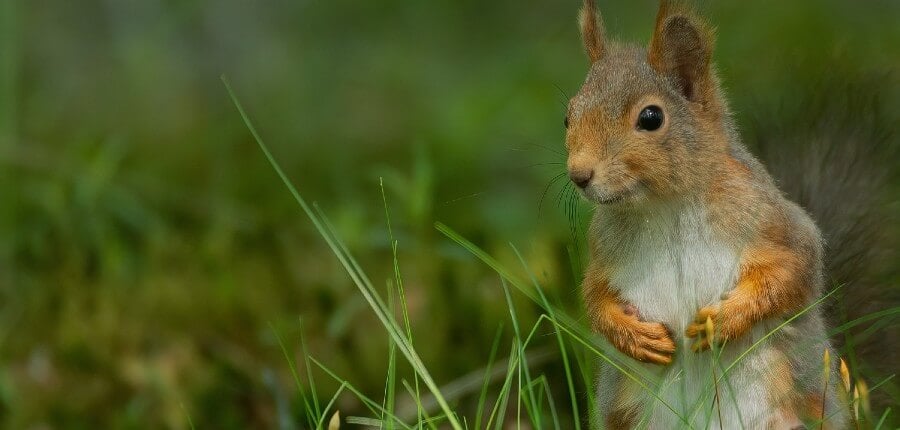PETA’s work to help people live in harmony with wildlife isn’t as well known as some of our other campaigns, but it is nevertheless a vital part of our mission to relieve animal suffering.
Imagine you are traveling through the countryside. The day grows long, and you start looking for a place to get food, water, and some rest. You spot a nice lodge, and on its shady porch, there is a big pitcher of water and a buffet has been laid out. There’s no one around, but a sign proclaims, “Help yourself!”
So you pour a glass of water, fill a plate with food, and sink into a comfy rocking chair with a smile on your face.
Just then, a giant creature 10 times your size appears and starts screaming and spraying poison on you. Or the creature starts shooting at you. Or he or she grabs you and tries to drown you in a tank of water. Or gates slam down around you, and you can’t get out. Or you try to run away but find that the ground is covered with glue, and the more you struggle, the more stuck you become.
It sounds like a bizarre horror movie, but countless animals are experiencing this living nightmare. Raccoons, deer, birds, opossums, mice, bats, squirrels, and other animals whose habitats overlap with ours often find themselves the victims of similar scenarios.
These are not instances in which people deliberately set out to harm animals through hunting, baiting, or trapping—although those activities are disastrous for animals as well. Instead, these dangers arise when people unintentionally extend an open invitation to their wild neighbors by creating an inviting shelter or an all-you-can-eat buffet without realizing it.
We grow gardens full of delicious plants and build golf courses, swimming pools, and fountains. We fill our garbage cans with tasty scraps and set them outside without secured lids. We leave the doors open to our garages and laundry rooms. We have attics, crawl spaces, and areas under porches and decks that, to certain animals, are the equivalent of luxury real estate. And we feed wildlife (something that we should never do).
And then the unfortunate animals who innocently take advantage of these “offerings” are terrorized, chased away, or killed—often in extremely painful ways.
Raccoons are an especially mistreated group of animals because their habitats frequently overlap with areas in which humans live. On any given day in North America, a huge number of raccoons are trapped, poisoned, drowned, or shot.
With all the dangers that animals face as a result of human thoughtlessness, ignorance, or cruelty, the importance of learning how to live in harmony with wildlife can’t be overstated.





